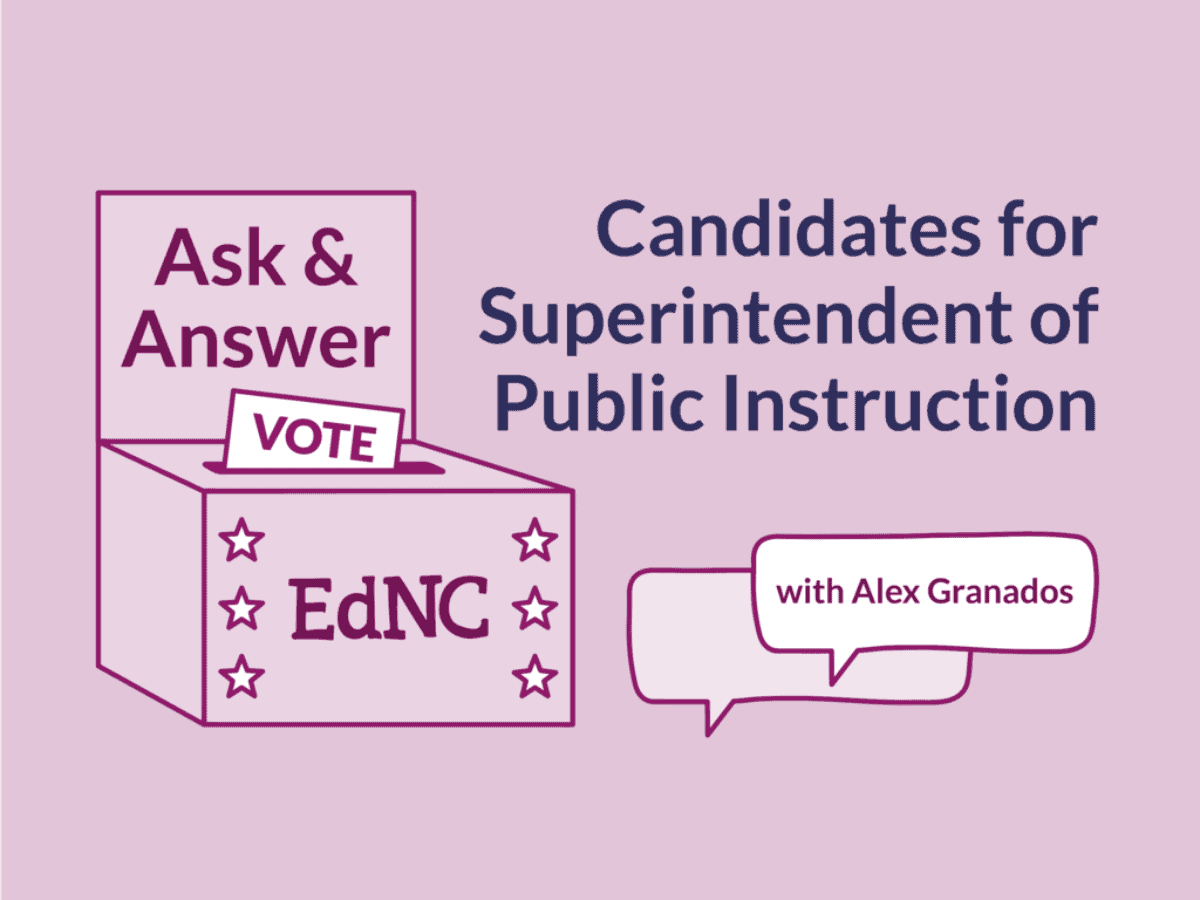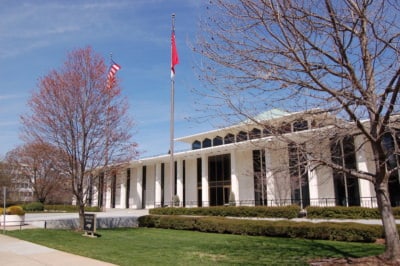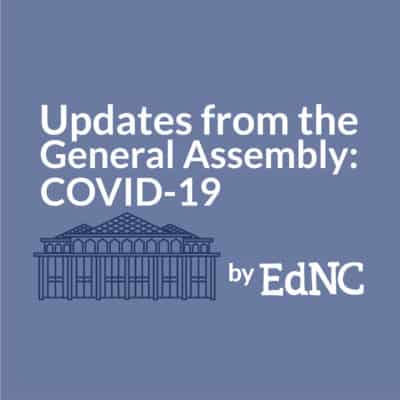
In a recent survey, EducationNC asked teachers what questions they had for the two candidates for state superintendent of public instruction. So far, we have received 129 responses. We winnowed those down to the best five and added three of our own. Over eight weeks, we are going to ask the two candidates for state superintendent one question a week and publish their responses.
Q: What should the state superintendent of public instruction’s role be in times of crisis, like that we are experiencing with COVID-19?
Democratic candidate Jen Mangrum
Monday was Memorial Day and I spent most of the day reflecting on my father’s life. He was a U.S. Marine who served in three wars: WWII, Korea, and Vietnam. After retirement, he became a fourth grade teacher. My father was a leader in every sense of the word and served as a model for me.
If fortunate enough to become the North Carolina State Superintendent of Public Instruction, I will lead our public schools effectively in good times as well as in crisis, using the skills I learned from First Sgt. Tom Robinson.
1. Marines look out for the welfare of those under their command. On March 15, right after it was announced that schools would close for students due to COVID-19, I posted on social media that it is our responsibility to ensure the health and safety of our school personnel. I recommended that they should not be required to go back into school buildings until we knew more about the spread of the virus, and I recommended alternatives for effective planning.
2. A skilled Marine leader communicates effectively to ensure everyone is on the same page. As the leader of more than 150,000 school personnel, I would communicate regularly so there is a consistent message across our state. People feel safe and engaged when they know what is happening, when goals and priorities are communicated clearly, and when they receive these messages in a timely manner.
3. Marines trust those closest to the frontlines to inform their most important decisions. In March, we should have brought our educators and other current school personnel together, entrusted them to provide us with the best information at their disposal, and asked them to help craft plans for moving forward. Instead, our current superintendent convened a task force, which included only one teacher, and still today apparently hasn’t developed a plan for reopening our schools in the fall.
Because our teachers and school personnel are those closest to our students, and because I do trust them to make these important decisions as we move forward into this new normal, I convened an advisory group of school personnel who are currently writing recommendations for the reopening of school. While these are not official recommendations, they represent the ideas of those who will actually work in our school buildings across the state come August. We hope to complete our work next week and will release these recommendations to the public.
4. Marines depend on reconnaissance — obtaining solid information — before taking action. I will work closely with and respect the input from the governor, the State Board of Education and the General Assembly, while at the same time ensuring that these decisions are informed by my expertise and knowledge. In this manner, leadership is strengthened and intelligent decisions are made in a collaborative manner.
It is imperative that North Carolina’s leader of public instruction has the respect and support of those who work in public schools. I will use the lessons of my father and the U.S. Marine Corps to be the leader North Carolina schools deserve. I am grateful for the hard work and commitment of our educators who have adapted to the current context and are doing their best during this challenging pandemic. As a lifelong educator whose own education and entire career have been in North Carolina public schools, I have lived the Marine Corps motto, “Semper Fi”, which means “always loyal.” I would be honored and humbled to serve as North Carolina’s next State Superintendent of Public Instruction.
Republican candidate Catherine Truitt
Authentic leadership, positive relationships, and trust are the keys to guarding and maintaining our children’s right to an education every day. And during a time of crisis, this high-trust environment creates the conditions necessary for local leaders to have the resources and services to match the needs of their community, especially those made most vulnerable by the crisis.
The U.S. Constitution does not guarantee citizens the right to an education, but our North Carolina constitution does, stating “…it is the duty of the State to guard and maintain that right” (Article I). The constitution details in Article IX that “The State Board of Education shall supervise and administer the free public school system and the educational funds provided for its support… and shall make all needed rules and regulations in relation thereto, subject to laws enacted by the General Assembly.” Further, the role of the Superintendent of Public Instruction is described as “the secretary and chief administrative officer of the State Board of Education.”
I include this explanation for two reasons. 1) When I was a teacher, I had no idea how state government factored into education policy; 2) It’s important to know what the role of the State Superintendent is because, by and large, it should not change during a time of crisis.
To be more specific, the State Superintendent is the head of the Department of Public Instruction, which is the administrative arm of the State Board of Education. In short, the General Assembly makes laws related to public education and the SBE works with DPI to ensure these laws and their policies are carried out.
On paper, it sounds like the role of the State Superintendent is simply to follow the law.
But of course, it’s not that simple. We have 115 diverse school districts consisting of 2,691 schools who serve over 1.5 million students. A one-size-fits-all approach to following the law doesn’t work.
I would argue that crisis or no crisis, the State Superintendent should impact education law and policy by doing these two things:
- Establishing trust and rapport with all local superintendents in a way that allows the voices of teachers and building leaders to be heard
- Building positive relationships with members of the State Board of Education and the legislature such that laws and policies allow for school districts to solve for their individual challenges in a way that best serves their students and their families
This results in the creation of a student-centered feedback loop — one which contains the concerns of all stakeholders and goes directly to those setting laws and policies. When this feedback loop is already in place and functioning, we can be proactive in our response to a crisis rather than reactive — and our students are the winners! I want local school leaders to view the State Superintendent as a partner ready to help their schools be the best they can be in the best of times and the worst.




